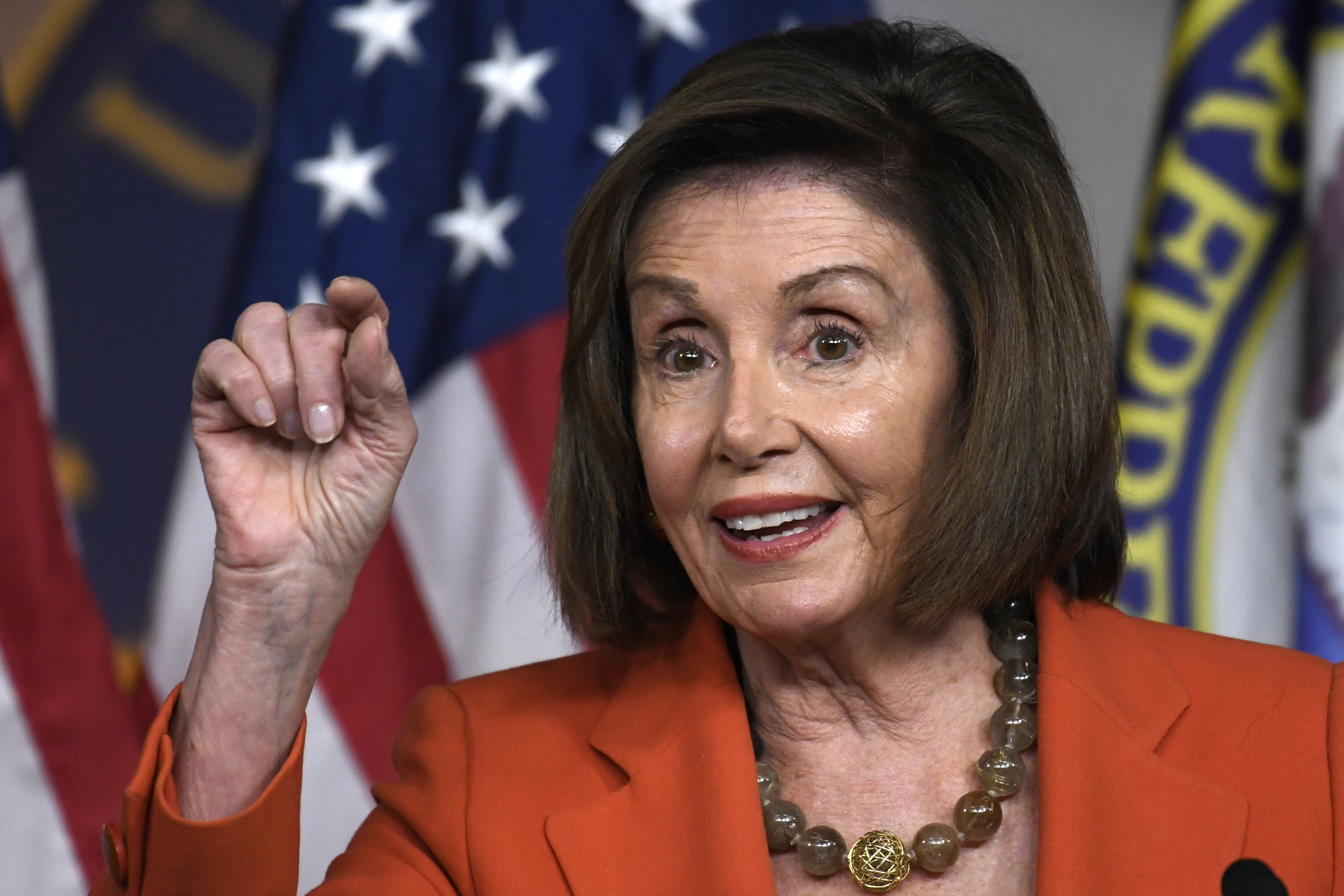A bitterly divided House of Representatives voted on Thursday to endorse the Democratic-led impeachment inquiry into President Trump, in a historic action that set up a critical new public phase of the process and underscored the toxic political polarisation that serves as its backdrop.
The vote was 232-196 to approve a resolution that sets out rules for an impeachment process for which there are few precedents, and which promises to consume the country a little more than a year before the 2020 elections.
It was only the third time in modern history that the House had taken a vote on an impeachment inquiry into a sitting President.
Practically speaking, the resolution outlines the rights and procedures that will guide the process from here on out, including the public presentation of evidence and how Trump and his legal team will be able to eventually mount a defence.
But its significance was more profound: After five weeks of private fact-finding, an almost completely unified Democratic caucus signalled that, despite Republican Opposition, they now have enough confidence in the severity of the underlying facts about Trump’s dealings with Ukraine to start making their case for impeachment in public.
The vote removed almost any doubt that Democrats would bring a full-fledged impeachment case against Trump for his apparent efforts to pressure a foreign power into investigating his domestic political rivals.
Less clear is how quickly Democrats can move to formalise their charges and, whether through public hearings and the presentation of new evidence, they can win over any Republicans.
To that end, the resolution appeared to be designed to challenge Republican criticisms that Democrats had spent the last few weeks shredding important precedents in their zeal to remove a president from office under the cover of secretive depositions.
Democrats urged Republicans to view Thursday’s vote as a turning point in the process, the moment when every House member must begin engaging with the evidence itself.
Representative Devin Nunes of California, the top Republican on the Intelligence Committee, said the panel had turned into “a cult”, adding angrily: “We now have a full-fledged impeachment committee in the basement of the Capitol. Think about that, America.”
Once the voting began, the House chamber buzzed with activity. Pelosi could be seen on the floor counting the votes as they came in and tracking Democrats until the very last minute, leaving nothing to chance.
In a statement just after the resolution was adopted, Stephanie Grisham, the White House press secretary, said that the House had approved a process that was “unfair, unconstitutional and fundamentally un-American.”
“The President has done nothing wrong,” she said, “and the Democrats know it.”
Though it is not a perfect comparison to votes taken to authorise impeachment inquiries into Clinton and President Richard M. Nixon, Thursday’s outcome underscored the depth of partisan polarisation now gripping American politics.
Democrats delivered a show of unity that just weeks ago seemed improbable, with even many moderate lawmakers who are facing difficult re-election races in conservative-leaning districts voting in favour of moving forward.
Whereas the vote against Nixon registered only four objections and 31 members of the President’s party endorsed the inquiry into Clinton, this time, not a single Republican defected.
Two Democrats, Representatives Collin C. Peterson of Minnesota and Jeff Van Drew of New Jersey, voted against the measure, while Representative Justin Amash of Michigan, the House’s lone independent, supported it.
The inquiry remains a high-stakes gamble for Democrats just over a year from the 2020 balloting, as their presidential contenders — some of whom would act as jurors in a Senate trial should the House vote to impeach — are already deep into their campaigns to try to defeat Trump.
Public polls in recent weeks have suggested a narrow majority of the nation backs the inquiry and believes Trump’s actions warrant scrutiny.
But support for Trump being impeached and removed appears weaker, and there has been no sign that the President’s narrow but durable base of supporters has been troubled by the accusations.
Though Trump and White House aides are increasingly resigned to the fact that the House will ultimately impeach him, for now, few lawmakers in either party believe there is a real threat that he would be convicted by the two-thirds majority needed in the Senate










